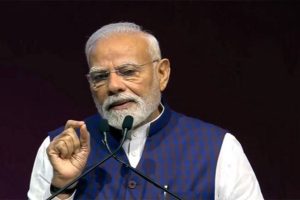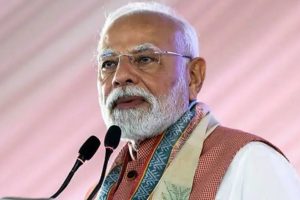Congress president Mallikarjun Kharge on Saturday lashed out at the US decision to impose a steep USD 100,000 annual fee on H-1B visas, describing it as a “return gift” from President Donald Trump to Prime Minister Narendra Modi following his recent 75th birthday greetings.
Trump had earlier wished PM Modi over a phone call, thanking him for his support in ending the Russia-Ukraine conflict. Linking the visa move to the call, Kharge posted on X, “Indians are pained by the return gifts you have received after the birthday call… USD 100,000 annual fee on H-1B visas hits Indian tech workers the hardest, with 70 per cent of them being Indians.”
Kharge accused the Modi government of reducing foreign policy to “bear hugs, hollow slogans, and concerts” instead of protecting India’s national interests. He said, “Foreign policy is about keeping INDIA FIRST and steering friendships with wisdom and balance, not superficial bravado that undermines our long-term standing.”
The Congress chief also cited other measures by the US that have adversely impacted India, including the HIRE Act targeting outsourcing, the 50 per cent tariff costing India an estimated ₹2.17 lakh crore, and the lifting of the Chabahar port exemption, which he said damaged strategic interests. He added that Trump’s repeated claims of having prevented a war between India and Pakistan further underlined the imbalance in bilateral relations.
Echoing Kharge’s criticism, Congress leader Supriya Shrinate warned that the visa fee hike would shrink opportunities for Indian professionals, slash remittances, and dissuade US tech firms from sponsoring Indian talent. “This is a body blow to the tech industry, which already has limited jobs for engineers in India. Many are being forced into low-grade or non-engineering jobs,” she said.
Trump’s latest proclamation, titled “Restriction on Entry of Certain Nonimmigrant Workers”, represents one of the most sweeping overhauls of the H-1B programme yet. Effective September 21, it imposes heavy compliance costs and stricter regulations on US companies hiring skilled foreign workers, a move critics say could cripple America’s tech talent pipeline while hitting Indian IT workers the hardest.





